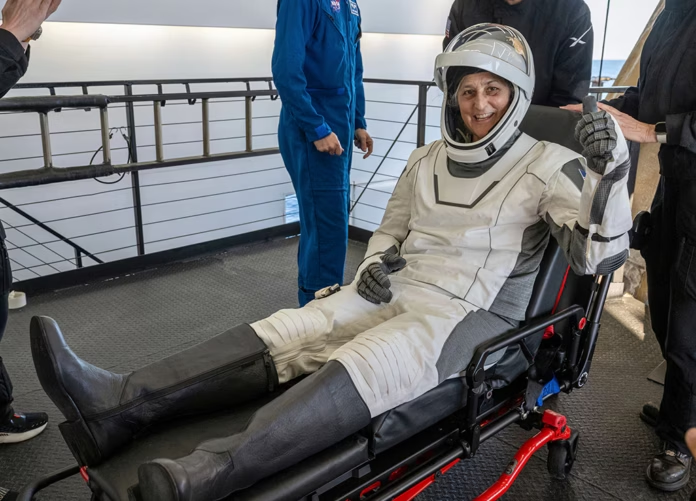The NASA astronauts, Sunita Williams and Butch Willmore were stranded into space for 286 days aboard the ISS. The two were stuck in space after a malfunction in their spacecraft prolonged their short visit. The duo returned to Earth on the 18th of March 2025 in a SpaceX capsule. Despite their short visit being stretched to almost 9 months in space, recent reports suggest the stranded astronauts will not get any overtime payment. If you are someone who wants to know more about NASA stranded astronauts being underpaid, this article is for you.
Stranded NASA Astronauts Underpaid:
Reason Why Sunita Williams And Butch Willmore Did Not Receive Overtime
According to a strict NASA policy, astronauts are also considered employees of the government while they are on space missions. They are just like any other civil servant traveling for work. Their travel orders usually cover their transportation, meals, and lodging. However, extended missions, no matter how long or dangerous, do not get them any extra overtime payment. Jimi Russell, who is a spokesperson for NASA’s Space Operations Mission Directorate, stated that the stranded astronauts will receive a $5 per diem for incidentals.
Also read: Trump’s Arrest Attempt Sparks Outcry: Pro-Palestinian Activists Arrested
How Much Did They Receive And How Much Does The $5 Per Diem Cover?
Sunita Williams and Butch Willmore, who were stranded in space for over 286 days, received around $1,430 in total per diem payments. Their annual pay remains around $152,258 which aligns with the senior federal employee pay scales. Their financial compensation reflects the standard government pay structure according to their contributions to space exploration. The $5 per diem is for incidentals which typically covers tips for porters, baggage handlers, or hotel staff. However, the astronauts were stranded 250 miles above Earth, where these services do not exist. This makes the relevance of this $5 per diem cover questionable.
Other Instances Like This
Clayton Anderson, a well-known NASA astronaut who spent around 152 days aboard the ISS in the year 2007, suffered a similar fate. He received a meager $1.20 per day, totaling just $172. In his statement over social media, Anderson expressed his disappointment. He stated that although becoming an astronaut was his dream, the pay was comparable to other government roles. Anderson’s situation showcased the gap between the risks astronauts often have to undertake and the compensation they receive for their contribution.
Why Astronauts Usually Accept Such Terms?
The attraction of space exploration often outweighs financial considerations for astronauts. Sunita Williams, one of the stranded astronauts who spent 286 days in space, said in one of her statements that this is her happy place. She also added that she loved being up there and it’s fun. Passion as well as dedication to their work are the two factors that drive these astronauts to ensure the physical toll of space missions as well as low financial considerations.
What Will Happen In The Future Missions?
Many private space companies are now entering the space exploration industry and longer missions like those exploring the Moon and Mars are becoming a reality. This may lead to an increase in the pay of the future astronauts. For now, it seems like NASA is going to stick to its old policy that treats astronauts on missions as government employees.








